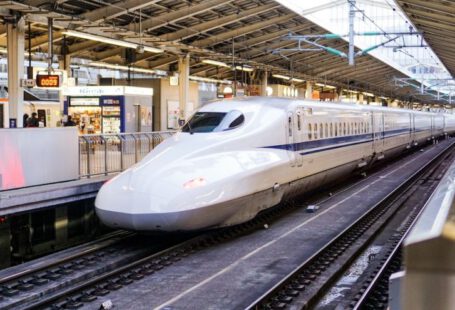Japan, a country known for its rich culture, technological advancements, and delicious cuisine, has always been a fascinating destination for travelers from around the world. However, one question that often arises in the minds of those planning a trip to Japan is, “Do many people in Japan speak English?”
The answer to this question is not as straightforward as one might think. While English is taught as a mandatory subject in Japanese schools, the level of proficiency varies greatly among individuals. In major cities like Tokyo and Osaka, where international tourism is more prevalent, you are more likely to find people who can communicate in English. However, venturing into more rural areas or smaller towns may prove to be more challenging in terms of finding English speakers.
It is important to note that despite the language barrier, Japanese people are generally friendly and helpful. Even if they don’t speak English fluently, they will often make an effort to assist you using gestures, maps, or translation apps. In fact, many Japanese people are eager to practice their English skills and may even strike up a conversation with you in an attempt to improve their language abilities.
To enhance your ability to communicate in Japan, it is advisable to learn a few basic Japanese phrases. Simple greetings like “Konnichiwa” (Hello), “Arigatou gozaimasu” (Thank you), and “Sumimasen” (Excuse me) can go a long way in establishing a rapport with the locals and showing your respect for their culture.
Furthermore, technology has made it easier than ever to bridge the language gap. Translation apps such as Google Translate can be a lifesaver when faced with a language barrier. These apps allow you to type or speak a phrase in your native language, and it will instantly be translated into Japanese. This can be particularly useful when navigating public transportation or ordering food at a restaurant.
Another aspect to consider is the prevalence of English signage in Japan. In major cities, you will find many signs and menus with English translations, especially in tourist areas. However, once you venture off the beaten path, the availability of English signage may decrease significantly. In such cases, having a map or the ability to ask for directions in Japanese can prove invaluable.
It is worth mentioning that Japan is making efforts to improve English proficiency nationwide. In recent years, the government has implemented various initiatives to promote English education, including hiring more native English-speaking teachers and introducing English-speaking activities in schools. Additionally, with the upcoming Tokyo Olympics in 2021, there has been a renewed focus on English language training to ensure a successful international event.
In conclusion, while it cannot be said that “many” people in Japan speak English fluently, it is possible to navigate your way around the country with limited knowledge of the language. Learning a few basic phrases, relying on translation apps, and being open to non-verbal communication can greatly enhance your experience in Japan. Moreover, the warm and welcoming nature of the Japanese people ensures that even in the absence of fluent English speakers, you will still be able to connect and enjoy all that this incredible country has to offer.





